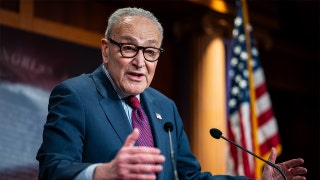Fox News 2023 Year In Review with Bill Hemmer
2023 was another turbulent year, marked by political dysfunction at home and two major world conflicts. America’s Newsroom anchor Bill Hemmer looks back at the top headlines of the past 12 months.
Supreme Court rulings, wars waged over parental rights, crackdowns on conservative school boards and scandals that imbued some districts with controversy: Education's rocky landscape showcased this year's equally tumultuous cultural climate, and the issue has taken center stage for candidates going into 2024.
Republicans continued to capitalize on parents' concerns that children are being exposed to age-inappropriate content in the classroom while calling for school choice and cautioning against giving transgender students access to single-sex spaces. Democrats, meanwhile, called out the opposition for alleged "book bans" and a majority defended transgender students' access to spaces corresponding with their preferred gender. The gridlock is expected to augment the intensity of an already explosive election season next year, and the issues aren't expected to fade anytime soon.
In the meantime, here are a few key moments that defined education in America in 2023:
Supreme Court strikes down affirmative action in college admissions
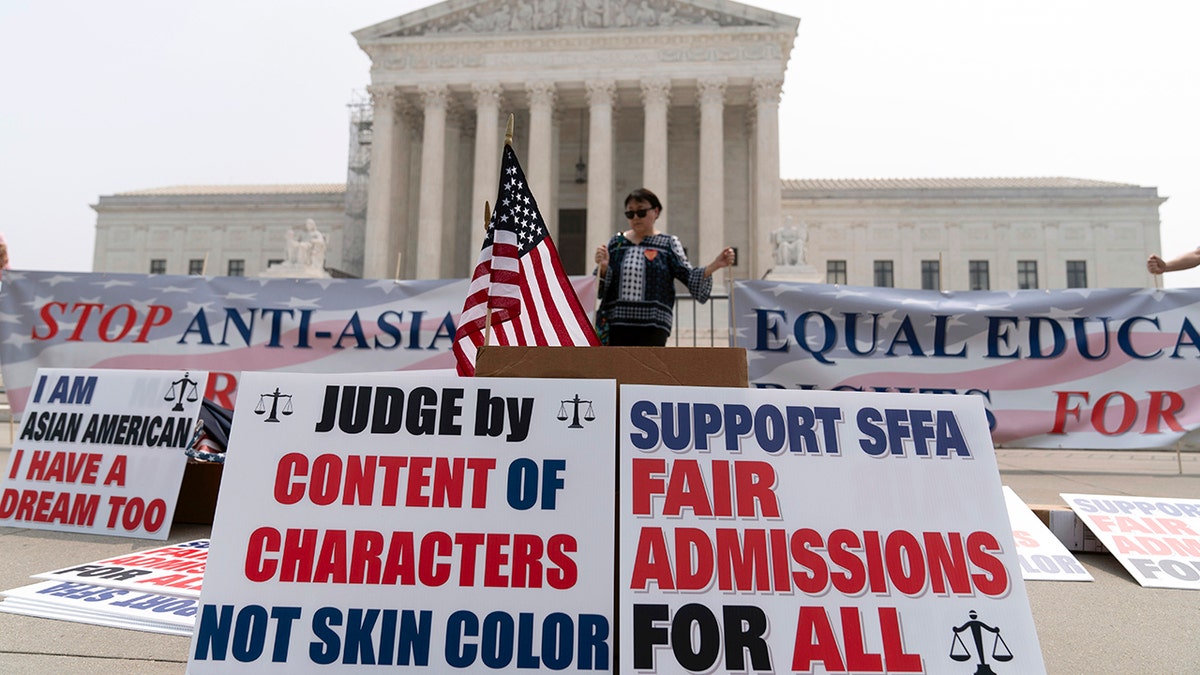
A person protests outside the Supreme Court in Washington, Thursday, June 29, 2023. (AP Photo/Jose Luis Magana)
The landmark ruling spawned protests from activists who claimed the decision would create hardship for African-American applicants, but the 6-3 ruling handed down by the High Court on June 29 was a relief to a coalition of Asian-American students who claimed race-based admissions practices had long infringed upon their chances of being admitted to elite universities.
Jon Wang, a student at the Georgia Institute of Technology – better known as Georgia Tech – told Fox Nation in "The Diversity Verdict" special that he was rejected by six elite universities – Harvard, MIT, CalTech, Princeton, Carnegie-Mellon and U.C. Berkeley – despite earning a stellar 1590 out of 1600 on his SAT and boasting a 4.65 high school GPA.
"I feel like, if I'm looking back, 10 or 20 years from now, if I didn't do it [speak up], I'd be pretty upset with myself," he said at the time.
A number of Asian-American students like Wang alleged the race-based practices held them to higher admission standards than members of other races.
SUPREME COURT JUSTICES THOMAS, SOTOMAYOR READ AFFRIMATIVE ACTION OPINIONS FROM BENCH IN RARE MOVE
Chief Justice John Roberts – who was joined in the majority by Justices Clarence Thomas, Samuel Alito, Neil Gorsuch, Brett Kavanaugh and Amy Coney Barrett – wrote in the majority opinion: "A benefit to a student who overcame racial discrimination, for example, must be tied to that student’s courage and determination."
"Or a benefit to a student whose heritage or culture motivated him or her to assume a leadership role or attain a particular goal must be tied to that student’s unique ability to contribute to the university. In other words, the student must be treated based on his or her experiences as an individual — not on the basis of race."
University presidents grilled during antisemitism hearings
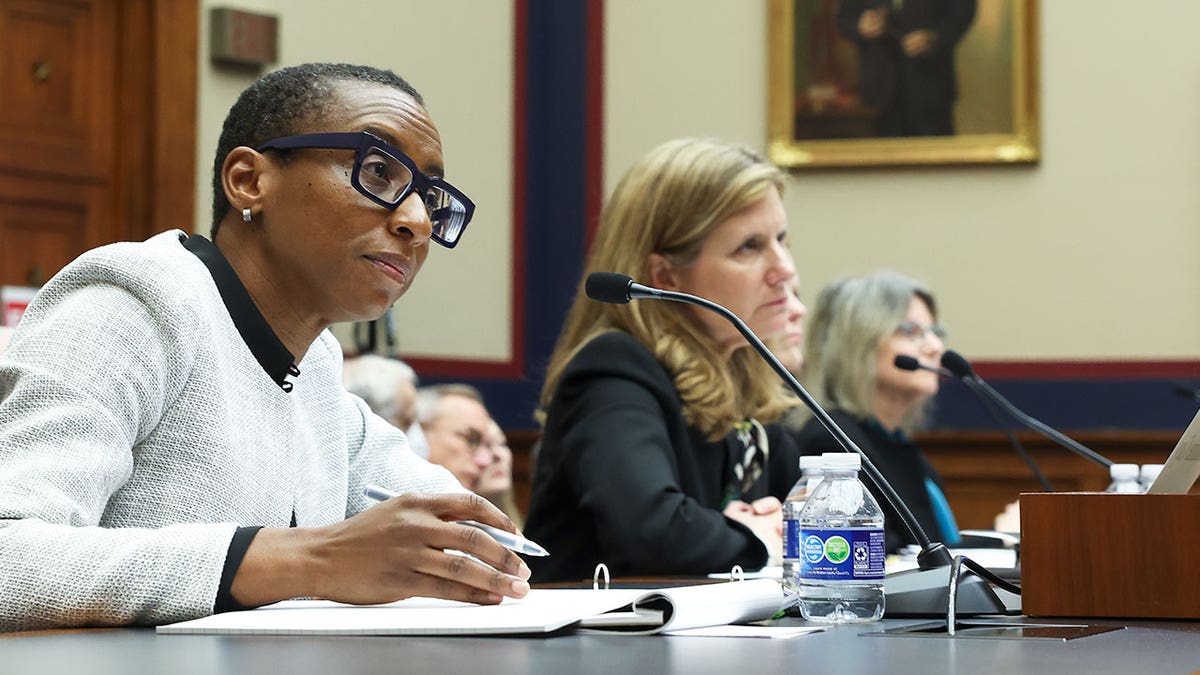
During the hearing on antisemitism, Magill, Gay, and Kornbluth all gave "evasive" answers when asked by Rep. Elise Stefanik if calls for the genocide of Jews would violate their institution's policies on bullying and harassment. (Kevin Dietsch/Getty Images)
The Israel-Hamas War began on Oct. 7 and sent shockwaves through the U.S. education system as pro-Palestinian student groups and Jewish students traded blows. Concerns over antisemitism on university campuses took center stage, and are still a focal point of education news across the nation.
University Presidents Claudine Gay (Harvard), Liz Magill (University of Pennsylvania) and Sally Kornbluth (MIT) were grilled by House lawmakers concerned about rising antisemitism. Rep. Elise Stefanik, R-N.Y., stood out among them with her pressing questions about violence against Jews.
UPenn President Liz Magill resigned after intense blowback for her testimony that was considered by many to fall short of clarifying that calls for genocide of Jews would violate university conduct. Though Kornbluth and Gay faced the same criticism, MIT’s executive committee pledged "full and unreserved support" for Kornbluth, issuing a statement praising her for "her outstanding academic leadership, her judgment, her integrity, her moral compass, and her ability to unite our community around MIT’s core values."
MIT ALUM WHO FLED SOVIET ANTISEMITISM URGES SCHOOL TO FIRE PRESIDENT: ‘LIKE 1988 ALL OVER AGAIN’
Gay also received support from the Harvard Corporation in a statement first reported by the Harvard Crimson: "As members of the Harvard Corporation, we today reaffirm our support for President Gay’s continued leadership of Harvard University. Our extensive deliberations affirm our confidence that President Gay is the right leader to help our community heal and to address the very serious societal issues we are facing."
Gay was allowed to remain president, but is also confronted with challenges as she faces plagiarism accusations for some of her past writings.
Pro-Palestinian demonstrations

Supporters of Palestinians gather at Harvard University to show their support for Palestinians in Gaza at a rally in Cambridge, Massachusetts, on October 14, 2023. (Photo by JOSEPH PREZIOSO/AFP via Getty Images)
Pro-Palestinian groups have vocally expressed their disdain for Israel, as well as the U.S.'s support for the Middle Eastern ally, flying Palestinian flags, projecting messages onto school buildings and holding demonstrations at an array of universities.
Students for Justice in Palestine posted a "call to action" on Instagram in October, just days after Hamas terrorists launched surprise attacks on Israeli residential areas on Oct. 7 and protests ensued at institutions including University of California Los Angeles (UCLA), Georgetown University, Columbia University, Rutgers University, University of North Carolina, and others.
Other measures to support the Palestinian people have also occurred, including one incident in which a class at U.C. Berkeley reportedly offered extra credit for students attending a pro-Palestinian "walkout." A Berkeley spokesperson said the situation "has been remedied" and explained that other options were made available for extra credit.
Students at George Washington University attended a pro-Palestinian vigil which also garnered attention in October. "Glory to our martyrs" was projected onto the side of a campus library building at the time, sparking outrage from the Jewish community and Israel's supporters.
Conservative districts in California's crosshairs
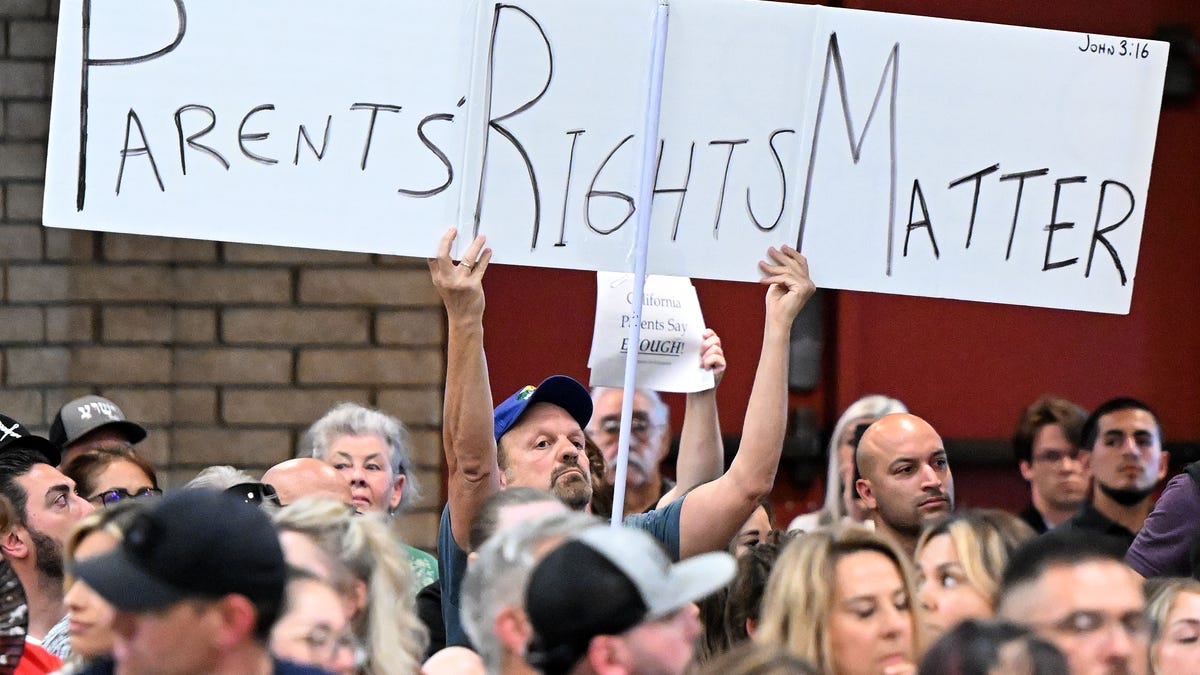
A parents' rights supporter holds up a sign during a Chino Valley Unified School District board meeting at Don Lugo High School in Chino. (Will Lester/MediaNews Group/Inland Valley Daily Bulletin via Getty Images)
The Chino Valley and Temecula Valley Unified School Districts each garnered attention this year while sparring with Democratic state leaders over state-approved academic curriculum local boards deemed inappropriate for students.
Temecula Valley came under fire from Democratic Gov. Gavin Newsom, who threatened the board with a $1.5 million fine for its refusal to adopt a state-approved social studies curriculum over allegations that it contained references to late San Francisco politician and gay rights activist Harvey Milk.
The board members, after much contention, later adopted the curriculum.
The Chino Valley School District came into the spotlight after adopting a 4-1 decision requiring the "principal/designee, certified staff, and school counselors" to, with three days of discovery, notify parents of a student's decision to identify with a gender that does not directly correspond with their biological sex, use different pronouns or a different name or use locker rooms and/or restrooms that do not correspond with their biological gender.
Sonja Shaw, the district's president, claimed she had received death threats during the ordeal.
"[Things like] 'you're going to die' with other inappropriate words, ‘your children are going to die,’ and ‘your animals are going to die…'" Shaw continued, telling the "Washington Watch With Tony Perkins" that those behind the threats noted the types of animals she has. Members of Antifa also "declare[d] war" on her, she said.
Erin Mellon, Gov. Newsom's communications director, provided the following comment regarding the claims: "No one should ever resort to violence because they disagree."
California Attorney General Rob Bonta announced a lawsuit against the district's Board of Education "to immediately halt the enforcement" of the transgender student policy in August. Shaw told Fox News Digital she was "not surprised" by the move.
That same month, Bonta launched a civil rights investigation into the district for potential legal violations over their policy requiring staff to notify parents of their child’s gender identity.
A judge later temporarily blocked the policy, but the district vowed to continue its fight. The case is still ongoing.
Education Department launches probe Into Virginia's Loudoun County school district
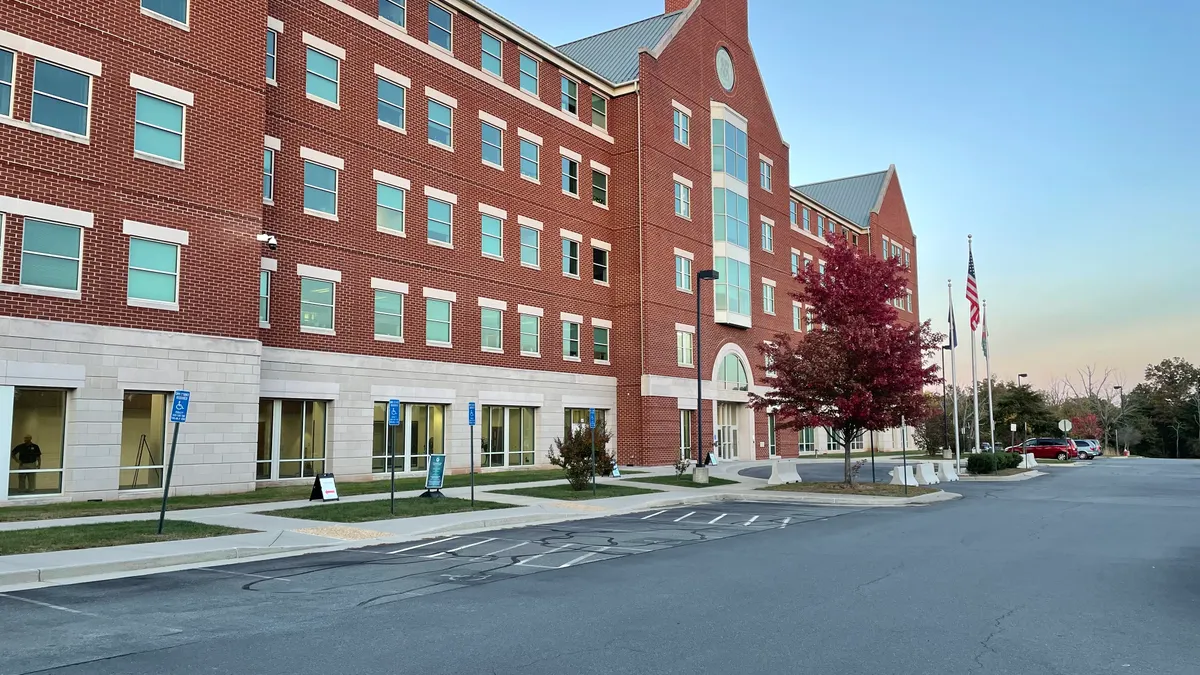
Loudoun County Public Schools Headquarters (Fox News Digital)
Virginia's embattled Loudoun County Public School District made its way into the spotlight in recent years after a slew of negative coverage for its mishandling of two sexual assaults, its transgender bathroom policy and its central role in parents' fight for rights over their children's education.
In April, the U.S. Department of Education (DOE) opened a probe into the district over allegations that leadership had failed to adequately address two sexual assault reports within the district in 2021.
America First Legal Foundation (AFLF) sent a letter to the Education Department in January claiming its inadequate handling violated Title IX requirements.
"This is about protecting students from sexual assault, and sexual harassment," AFLF senior advisor Ian Prior said, according to Fox 5 DC. "And it's important that the politics are taken out of this, and they do a thorough investigation to make sure that these problems are remedied."
Scott Smith, the father of one girl assaulted in the girls' bathroom by a biological male wearing a skirt, called the DOE probe "meaningless" in a statement to FOX 5 DC, saying, "It’s like the National School Board, who branded me a domestic terrorist, saying that they are going now to investigate the harm put upon my family — it’s biased, and the only result that the USDOE will come to is that Loudoun did everything right, in order to protect it from truth and reason."
Smith rose to national attention after being arrested during one of the district's school board meetings and found guilty of disorderly conduct. He later explained the incident to The Daily Wire, elaborating that the outburst stemmed from his anger that the district tried to cover up his daughter's assault.
Gov. Glenn Youngkin pardoned Smith this year and made the announcement on "Fox News Sunday" with Shannon Bream in September.
More states pass universal school choice
North Carolina became the ninth state to pass universal school choice when the legislature passed its budget on September 22.
School choice policies allow parents to send their kids to schools outside their neighborhood or opt out of going to the public school in their neighborhood. Most states restrict parents to schools within their zip code or the school district that presides over their residential area.
North Carolina ushered in its school choice expansion with the Education Savings Account model (ESAs). ESAs allow parents to use public funds to cover a variety of education expenses, including private school tuition, instructional materials, and homeschooling costs.
Arizona was the first to get the universal school choice ball rolling. In July 2022, the state opened up its Educational Savings Account program to all students, eliminating restrictions that had limited it to those in poor-performing school districts, Indian reservations and those with disabilities.
AI enters the classroom
Artificial intelligence has inevitably begun to find its way into American classrooms, igniting a debate among experts about whether AI will eliminate traditional teaching, or present educators and students with positive opportunities.
One tool that students have often been taking advantage of is ChatGPT, a generative AI chatbot capable of having conversations with humans, when writing essays and other assignments. Others have utilized it when working on their college applications.
University of California, Berkeley professor of computer science Hany Farid told Fox News that while some professors may have had reservations about ChatGPT, they are now referencing it when writing syllabi and exams.
"I've seen professors using it to help design courses, write exam problems, write homework problems," he said.
Others teachers have used ChatGPT in creative ways to help their students learn, such as having it translate Shakespeare or come up with math raps to help them remember formulas, a TIME report found. Some have experimented with the tool to create simplified versions of readings.
WILL AI END EDUCATION AS WE KNOW IT? ECONOMIST PREDICTS SCHOOLS, TEACHERS COULD BECOME ‘OBSOLETE’
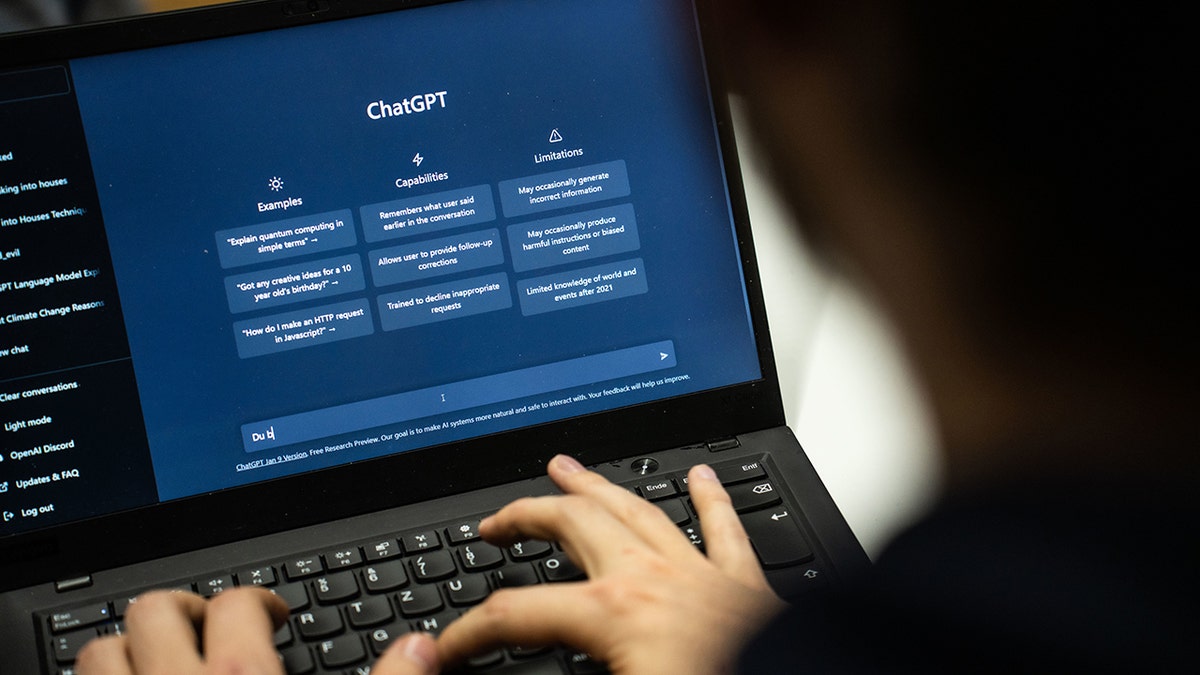
The text software ChatGPT. (Frank Rumpenhorst/picture alliance via Getty Images)
A report in NEA Today highlighted the internal struggle educators are having. While some teachers worry ChatGPT will encourage cheating and plagiarism, others say that its "simple design and brainstorming capabilities appeal to educators who see its potential to improve education," according to the report.
"One of the jobs that is likely to be eliminated by A.I. is teaching," Euro Pacific Asset Management chief economist Peter Schiff recently told FOX News Digital. "I think certainly for elementary school education K through 12. I think at the end of the day, schools will be obsolete. The teachers, the administrators, the unions, the whole bureaucracy."
Schiff also argued that AI could be "a great leveling field" that could put families on the same path despite a growing wealth gap.
"Everybody is going to have access to the same level of teaching at virtually no cost through AI," he said. "And so people will be able to educate themselves from home with using artificial intelligence more efficiently and better and faster than the current system."
That is a cause for concern for teachers’ unions like AFT, as outlined in a recent resolution that asked for advanced technologies to be developed and employed "ethically."
"AFT leaders in higher education expressed concern that fiscal pressures may push public colleges and universities toward even more online learning," the AFT resolution read. "And public employees who work in federal, state and local public service fear their jobs may be increasingly outsourced to chatbots and other robots."
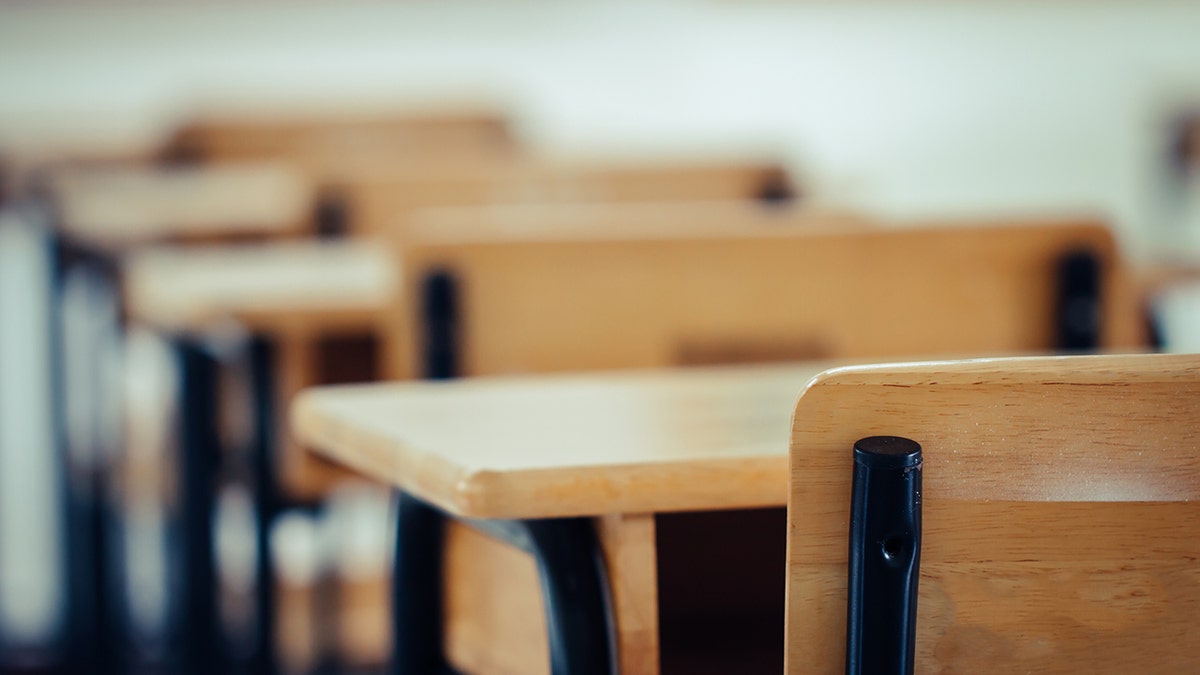
Students have often used ChatGPT when writing essays and other assignments, and for the college application process. (iStock)
Palm Beach Atlantic University professor of communication and Supper Honors Program director Dr. Tom St. Antoine argued, however, that the technology presents educators with a "really good opportunity," while acknowledging there are some things AI can never replace.
"A.I. can write a book for you, but it can't read a book for you," he said. "And so that's when education really happens, when we're exposed to exciting, challenging new ideas. We have the experience of studying them and then maybe modifying our own worldview to accommodate those new ideas. And it's that side of education that I think remains."
CLICK HERE TO GET THE FOX NEWS APP
Fox News' Brian Flood, Joshua Q. Nelson, Landon Mion, Hanna Panreck and Madeline Coggins contributed to this report.









